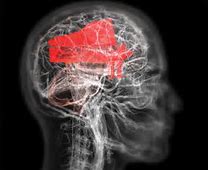I’ve mentioned before in other posts about practice the importance of focus. Some students over the years have told me that they like to practice while watching TV. This is not something that I would recommend. I feel it would be better to focus entirely on the practice for a shorter amount of time instead of spending a longer period only half tuned into the task at hand. There are more and more distractions in our daily lives and our smartphones have become needy tamagotchi (anyone remember them? https://en.wikipedia.org/wiki/Tamagotchi) that demand our constant attention. So if you intend to improve your playing of an instrument, give yourself and your brain the time that it needs to absorb all the information that is happening while you are practicing.
Remember to practice the elements of your playing that need work. Spending hours playing on autopilot everything that you can already play will not help you to achieve the next level in your playing. An interesting part of the following TED video is that practicing in your mind can also be beneficial. So if you had no instrument to hand but were able to visualise your hands playing a piece that you are currently working on it will help. This isn’t an excuse though to just think about practicing and hope that it will improve your playing. Check out my other posts about practice for guidelines on how long to practice for.





